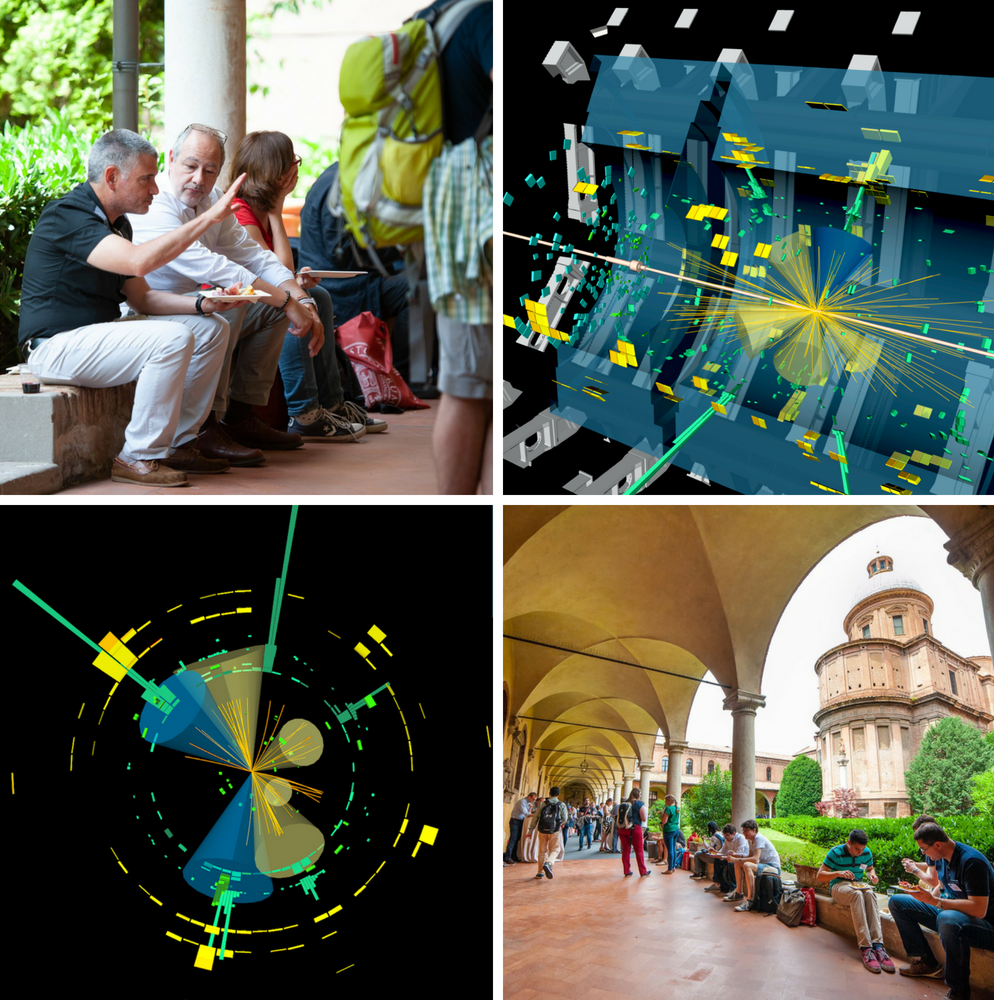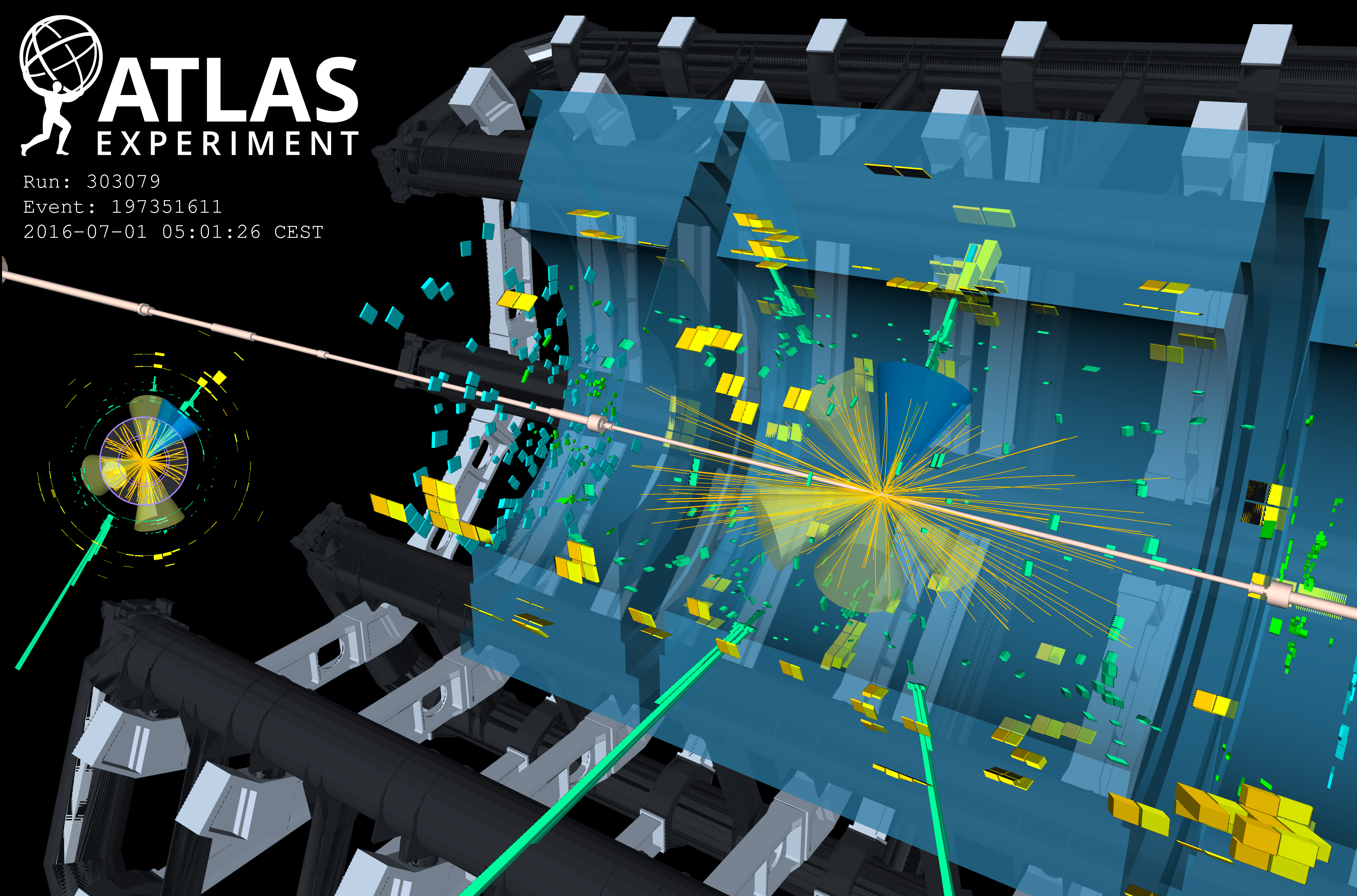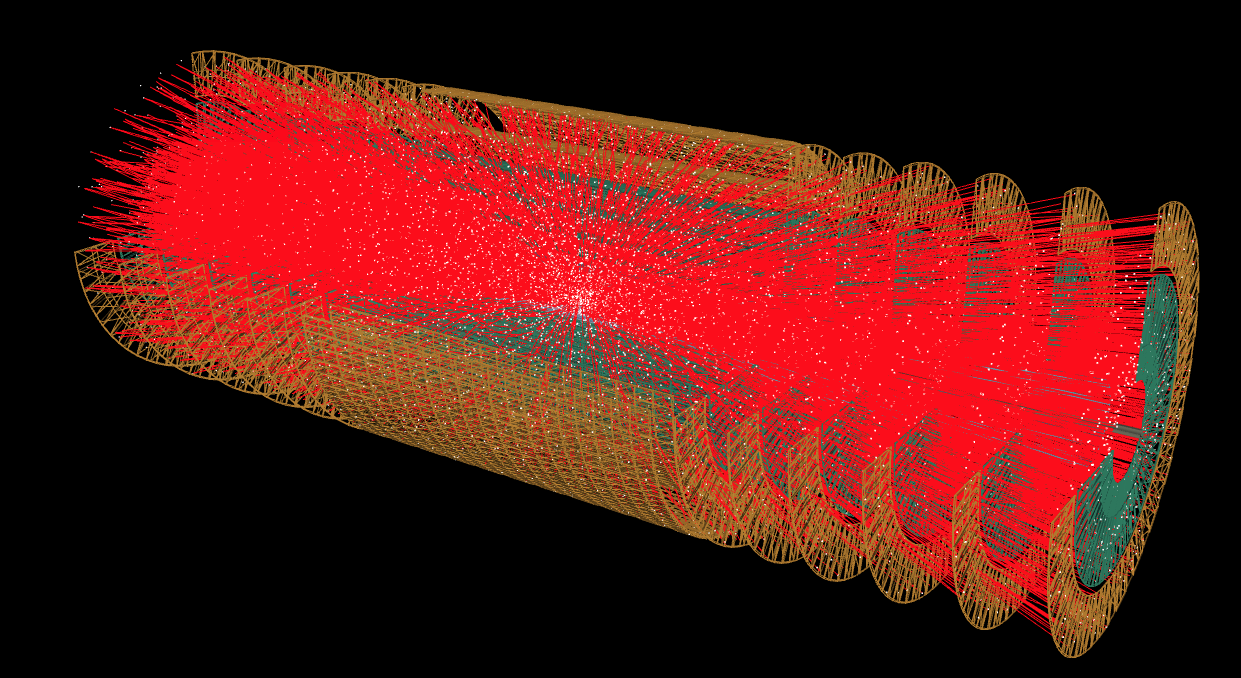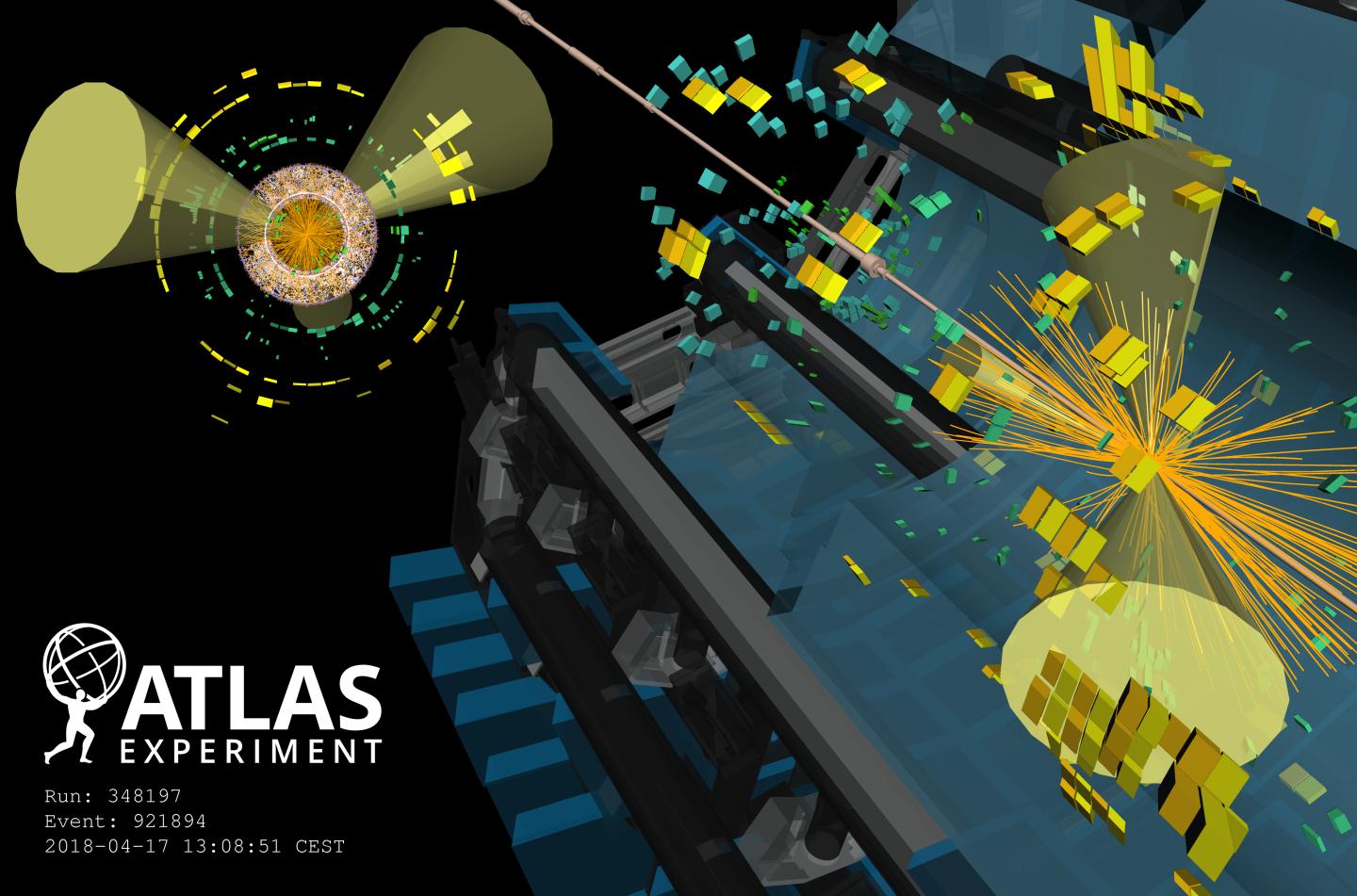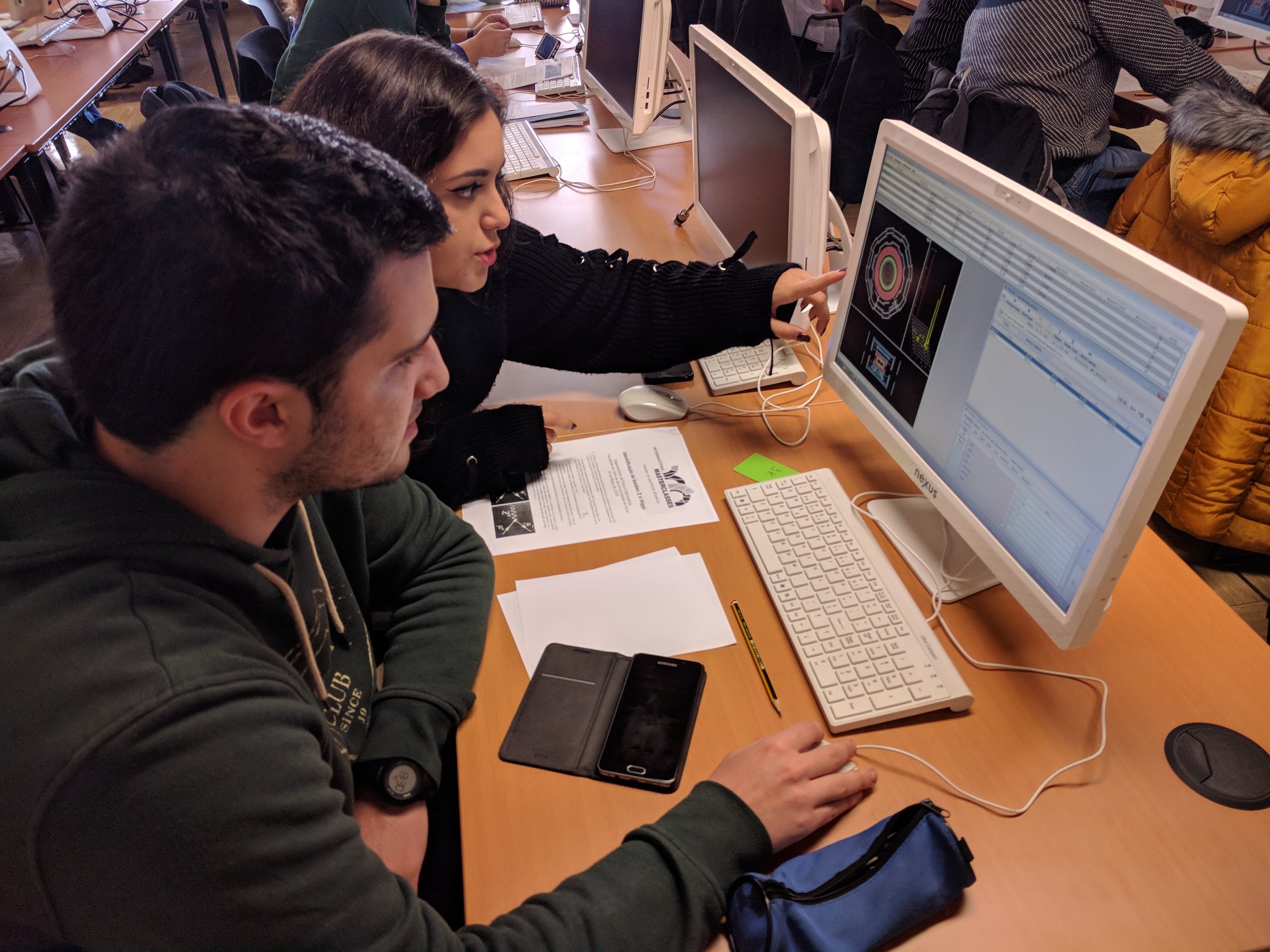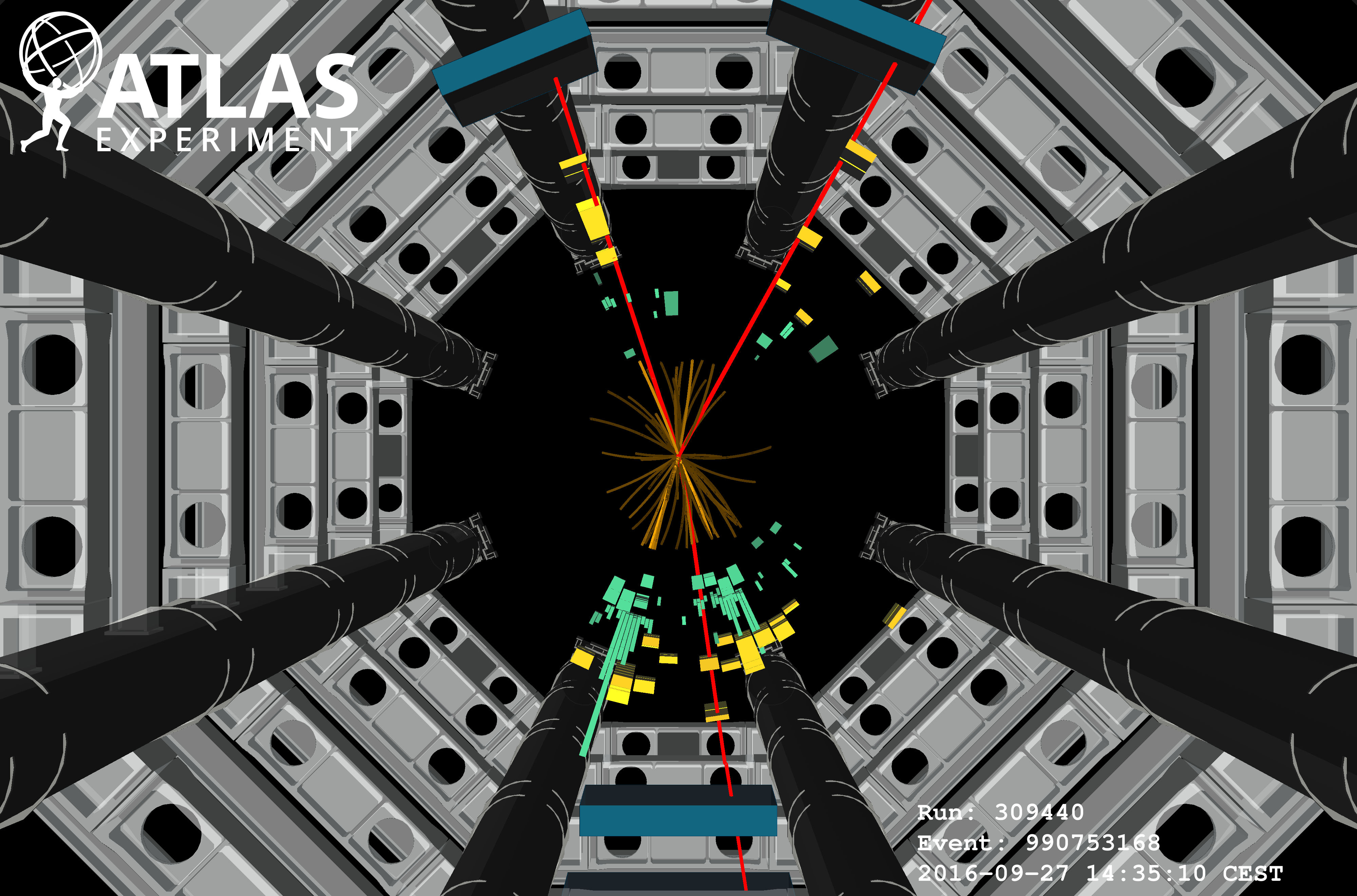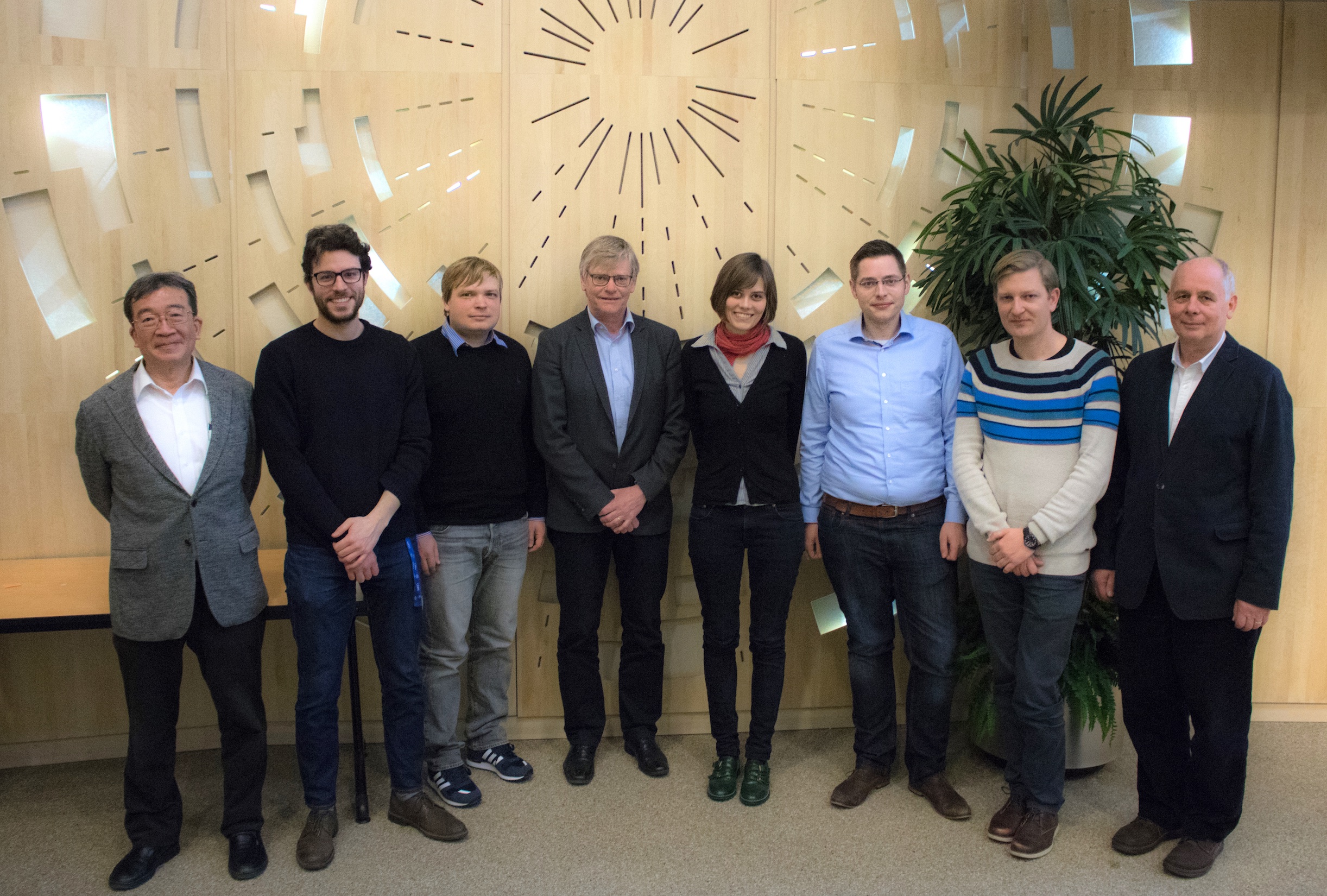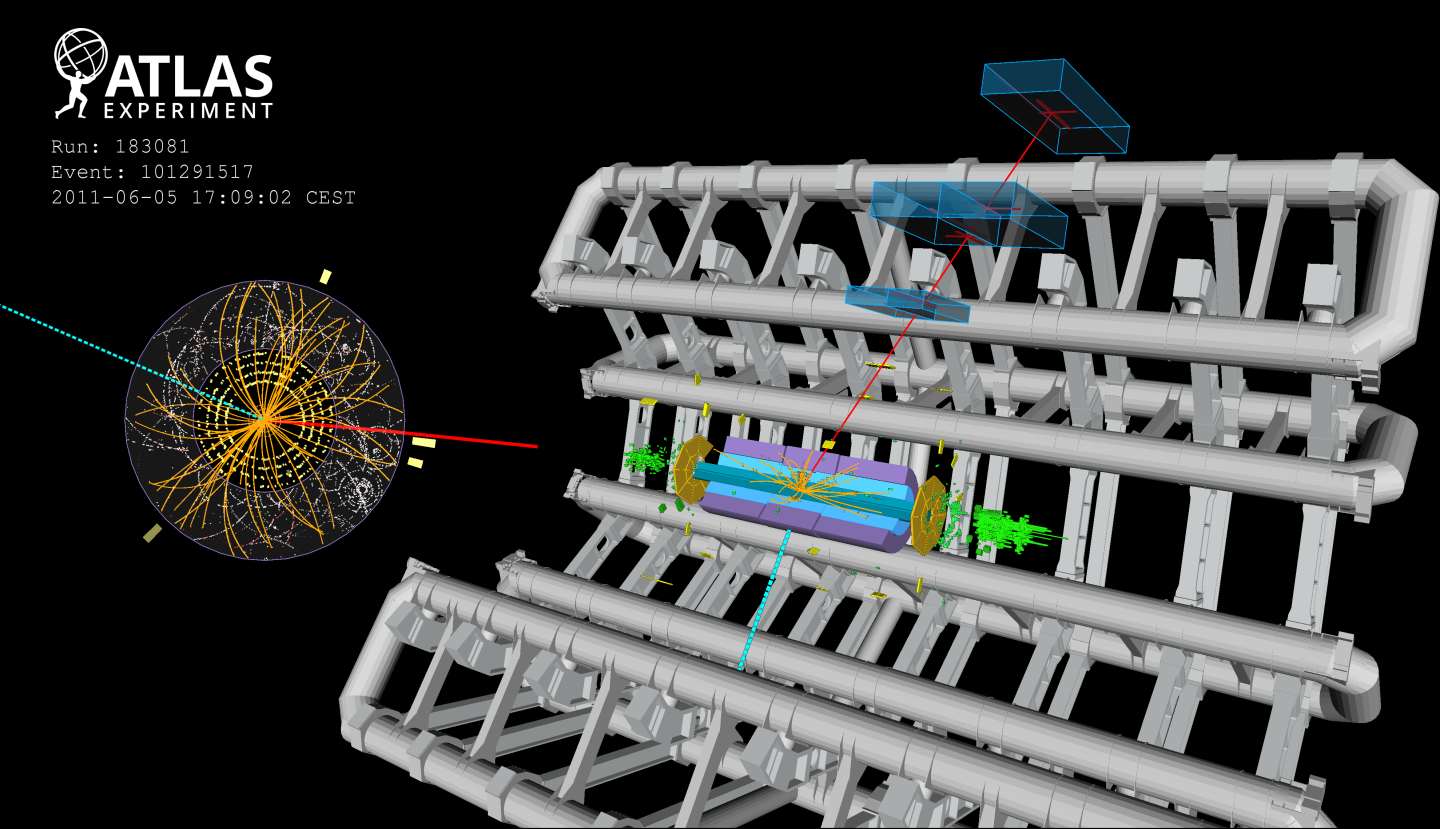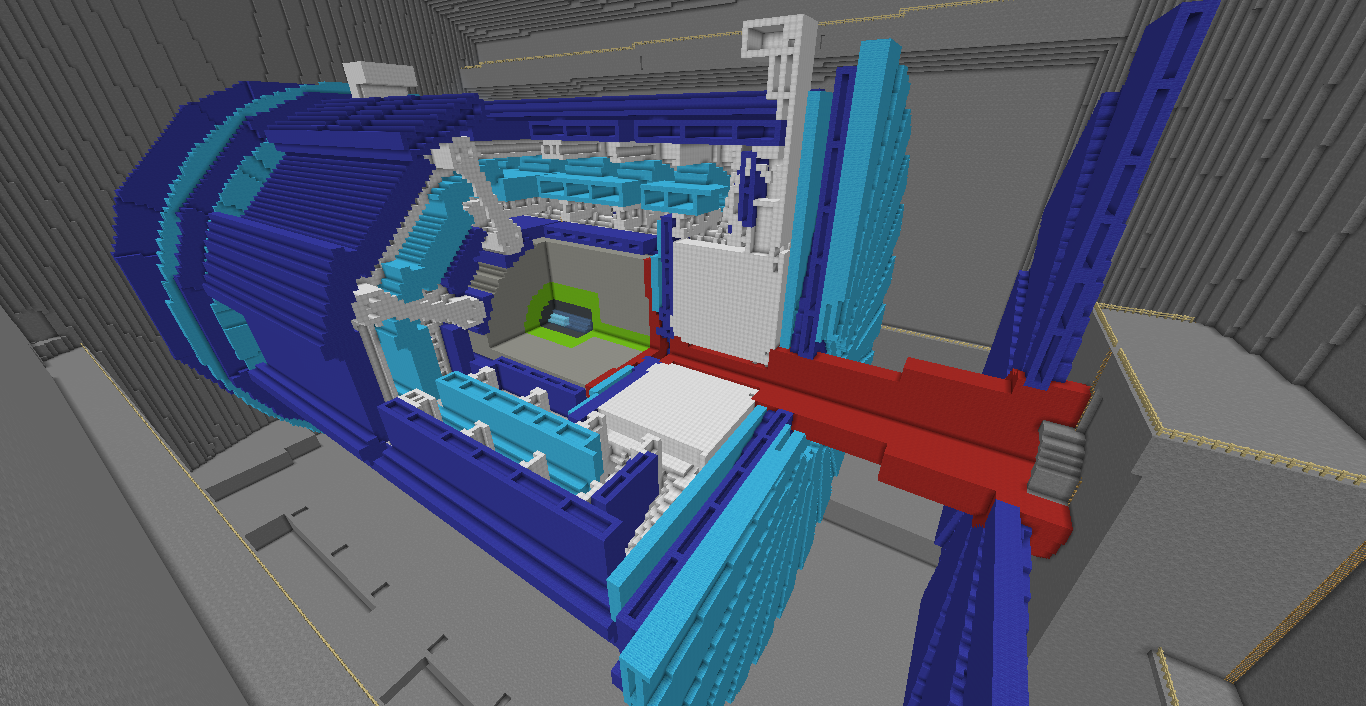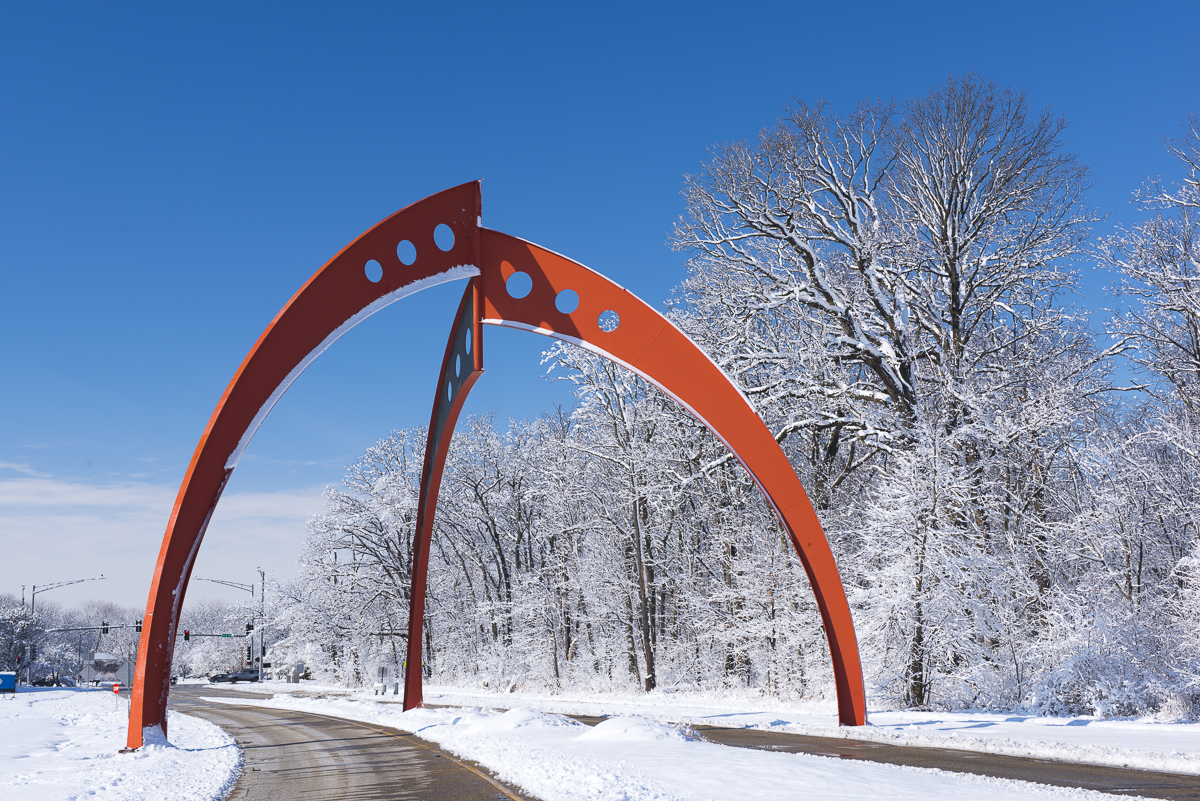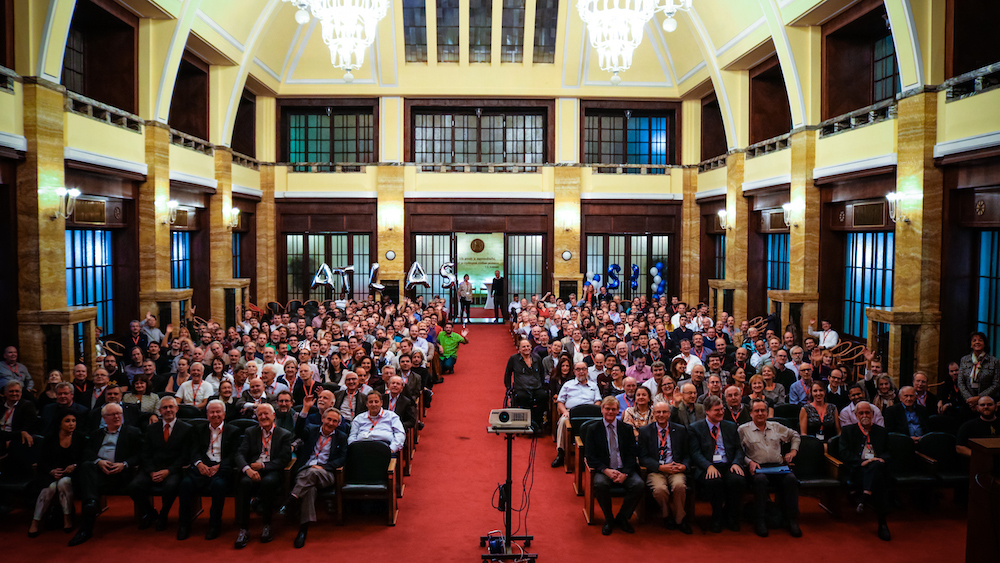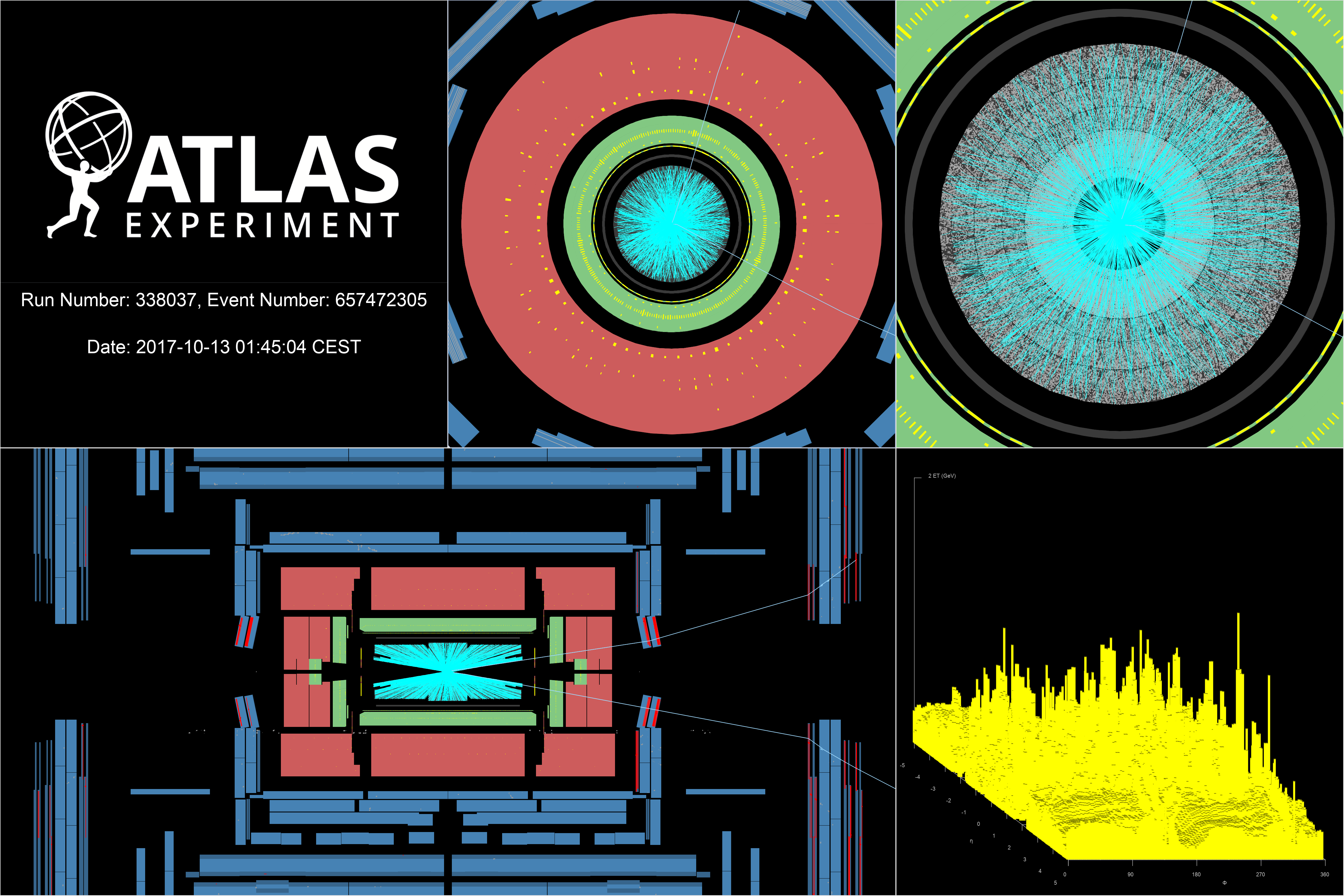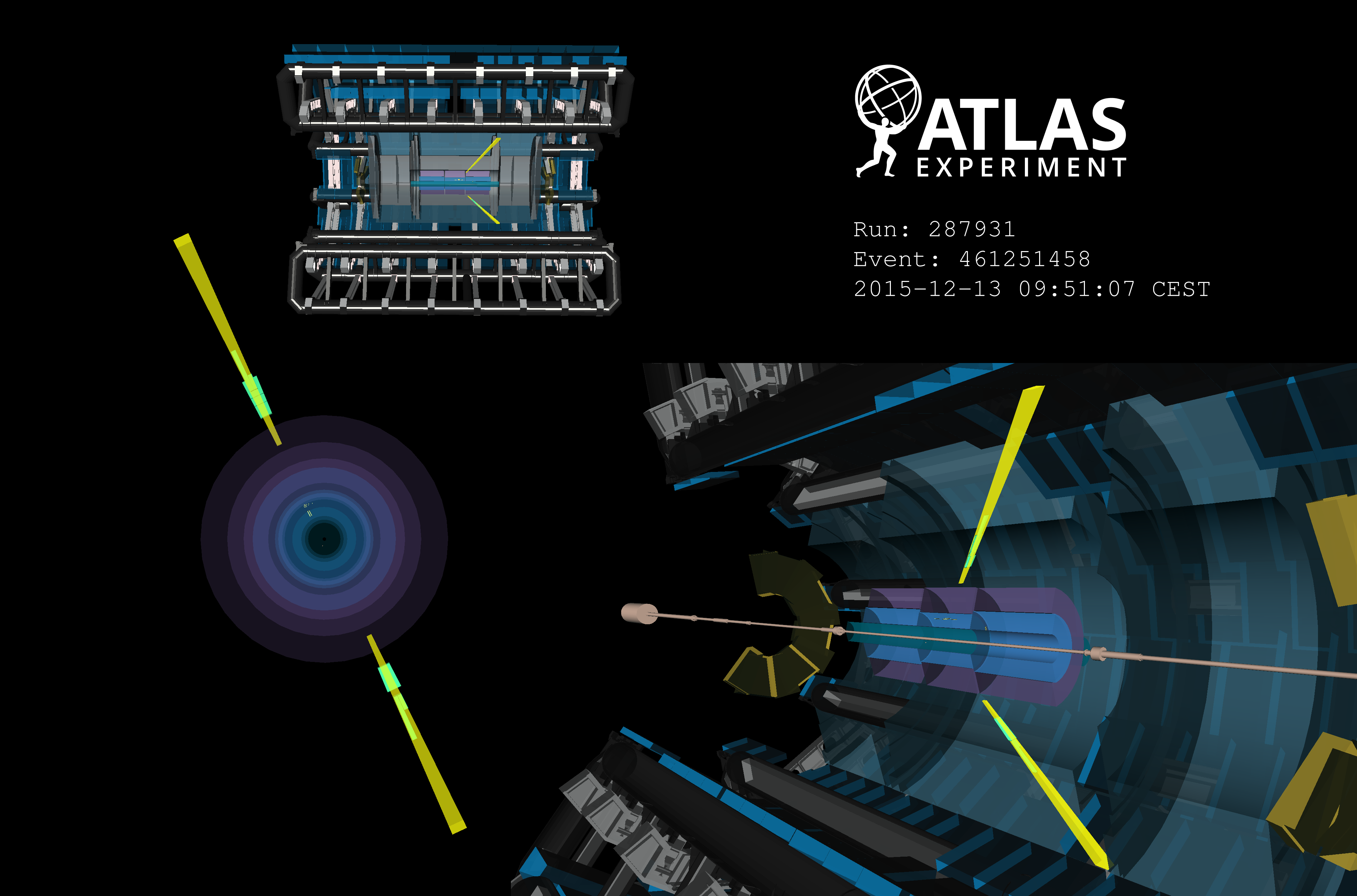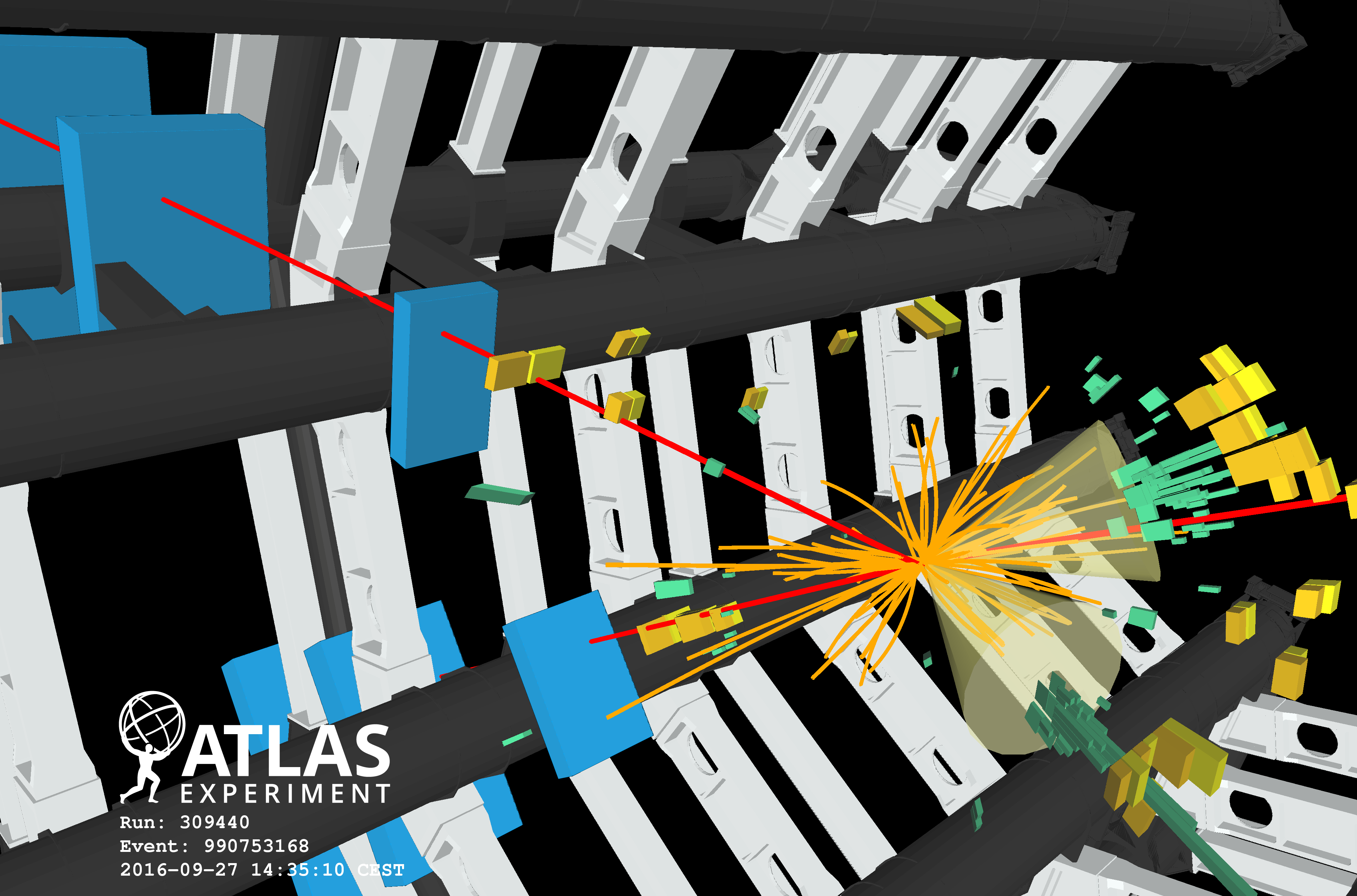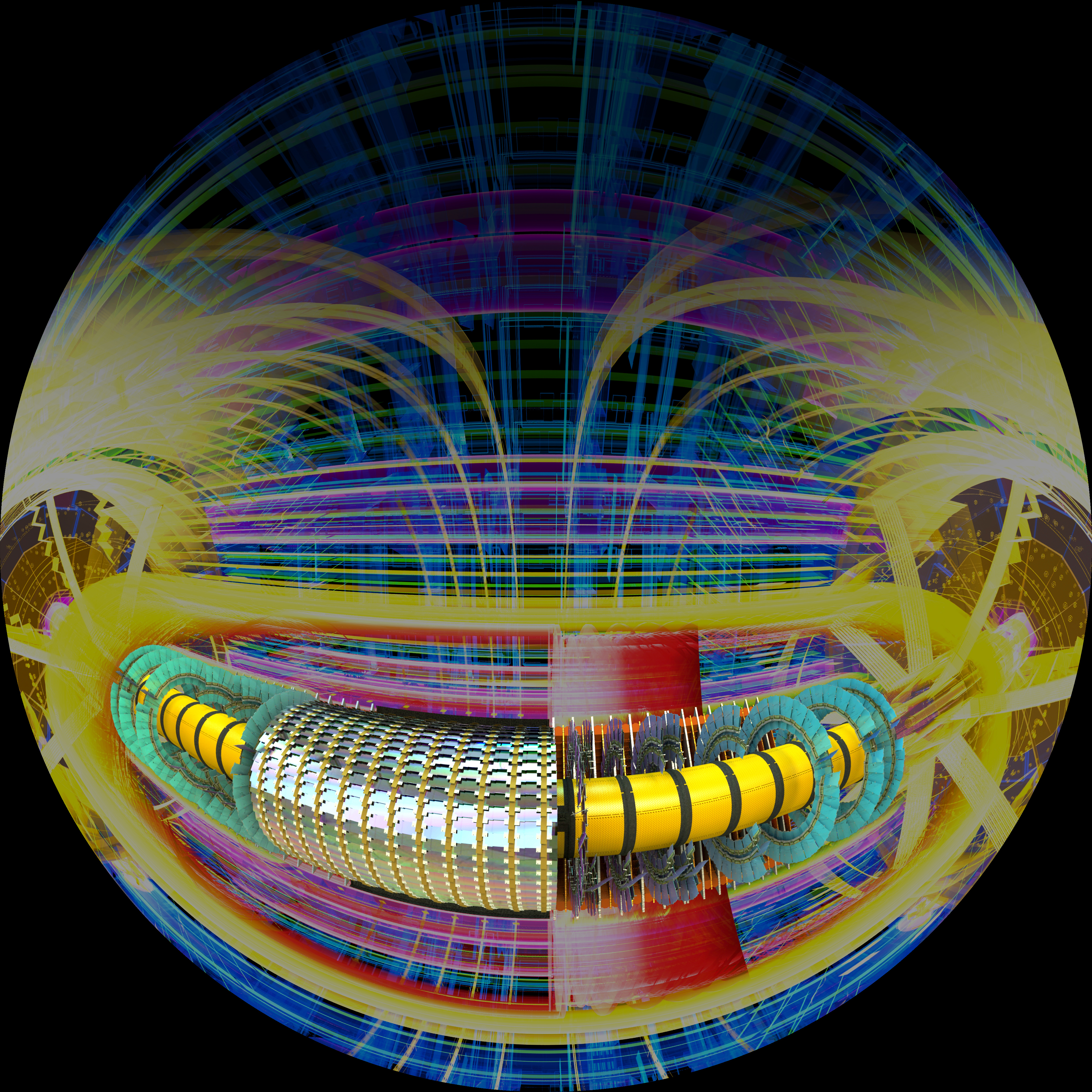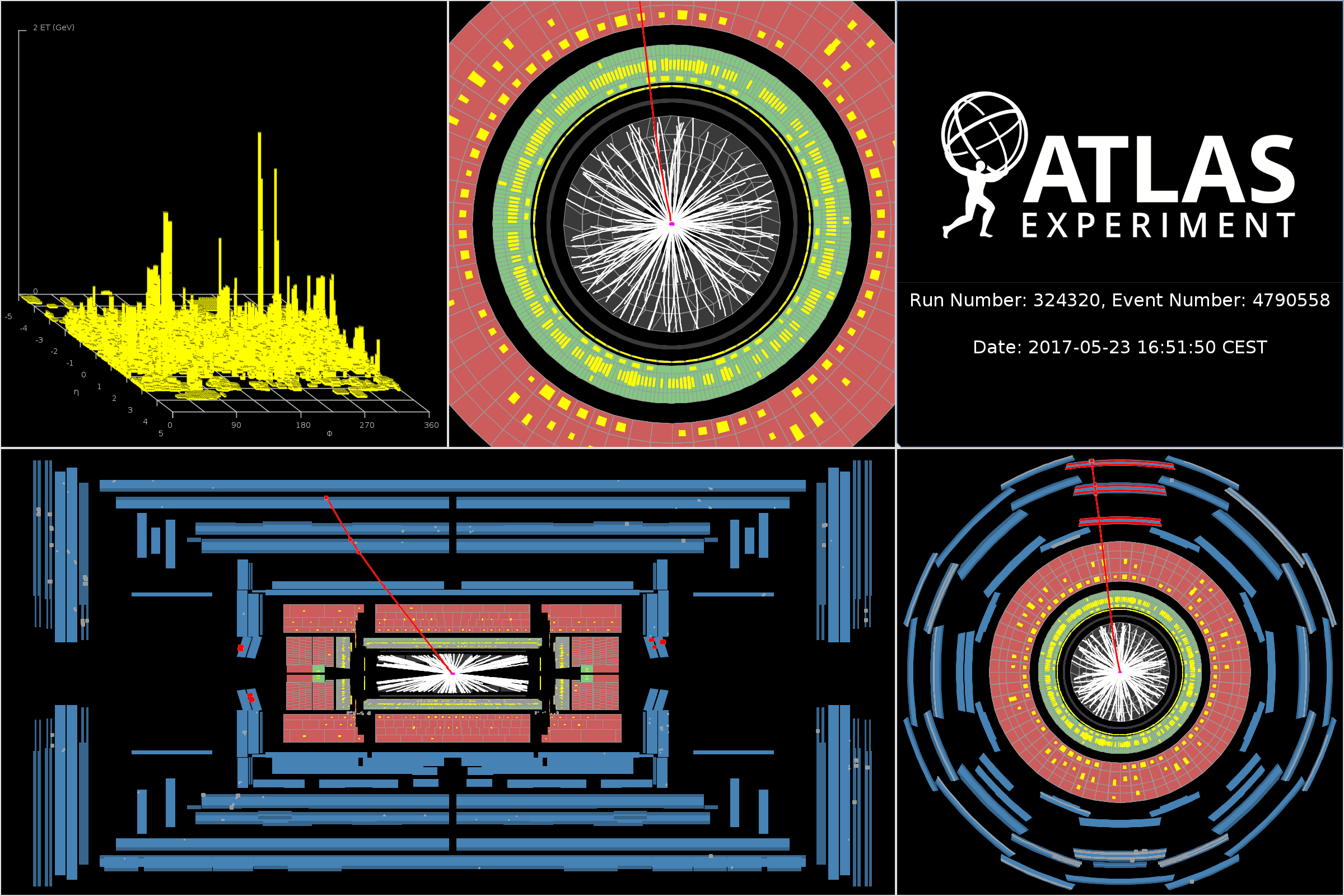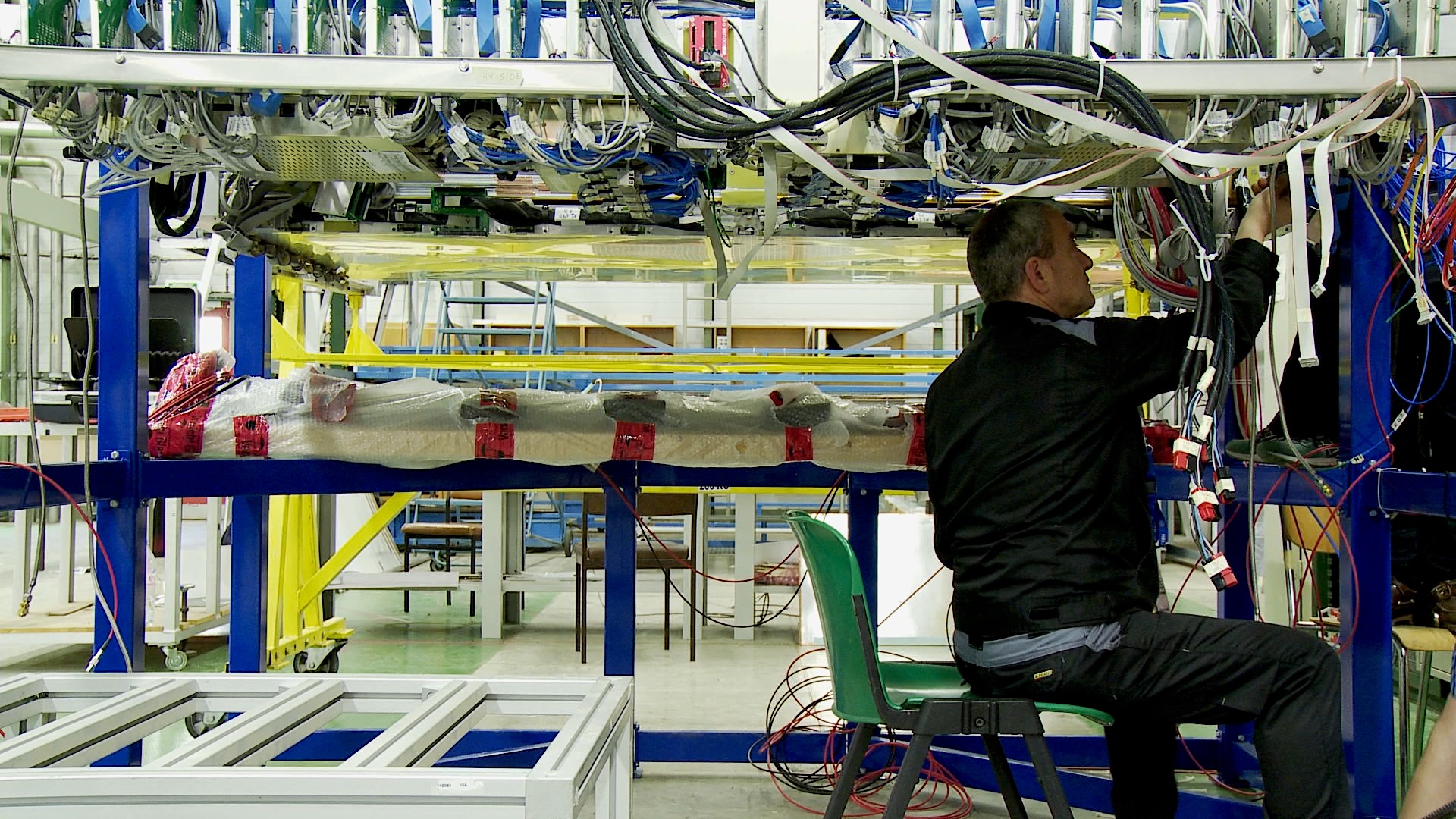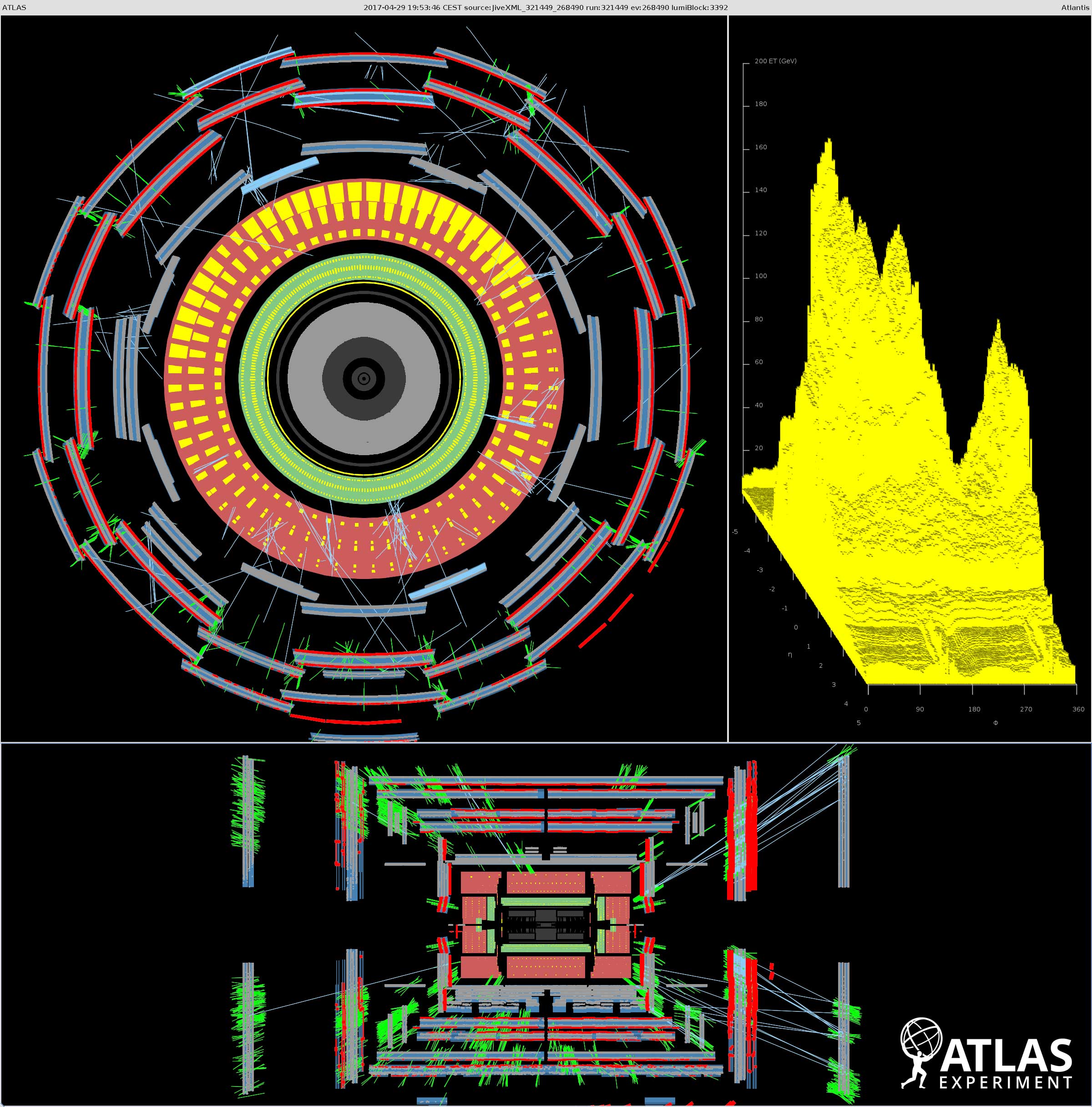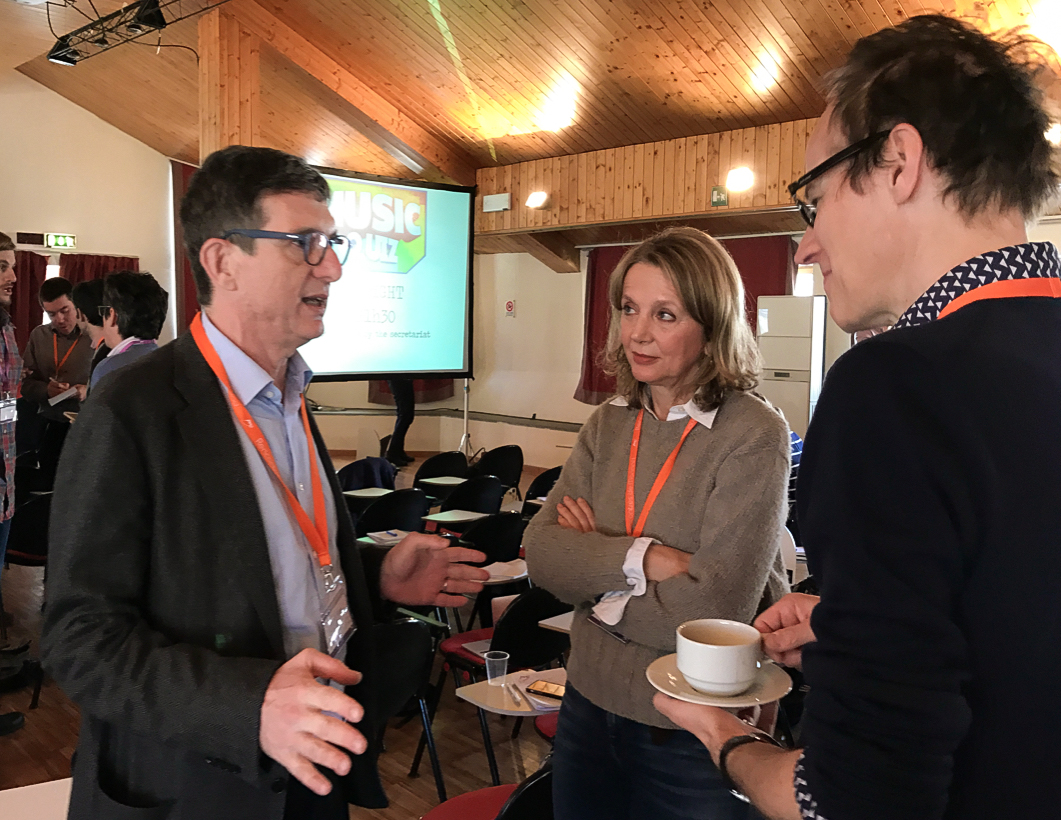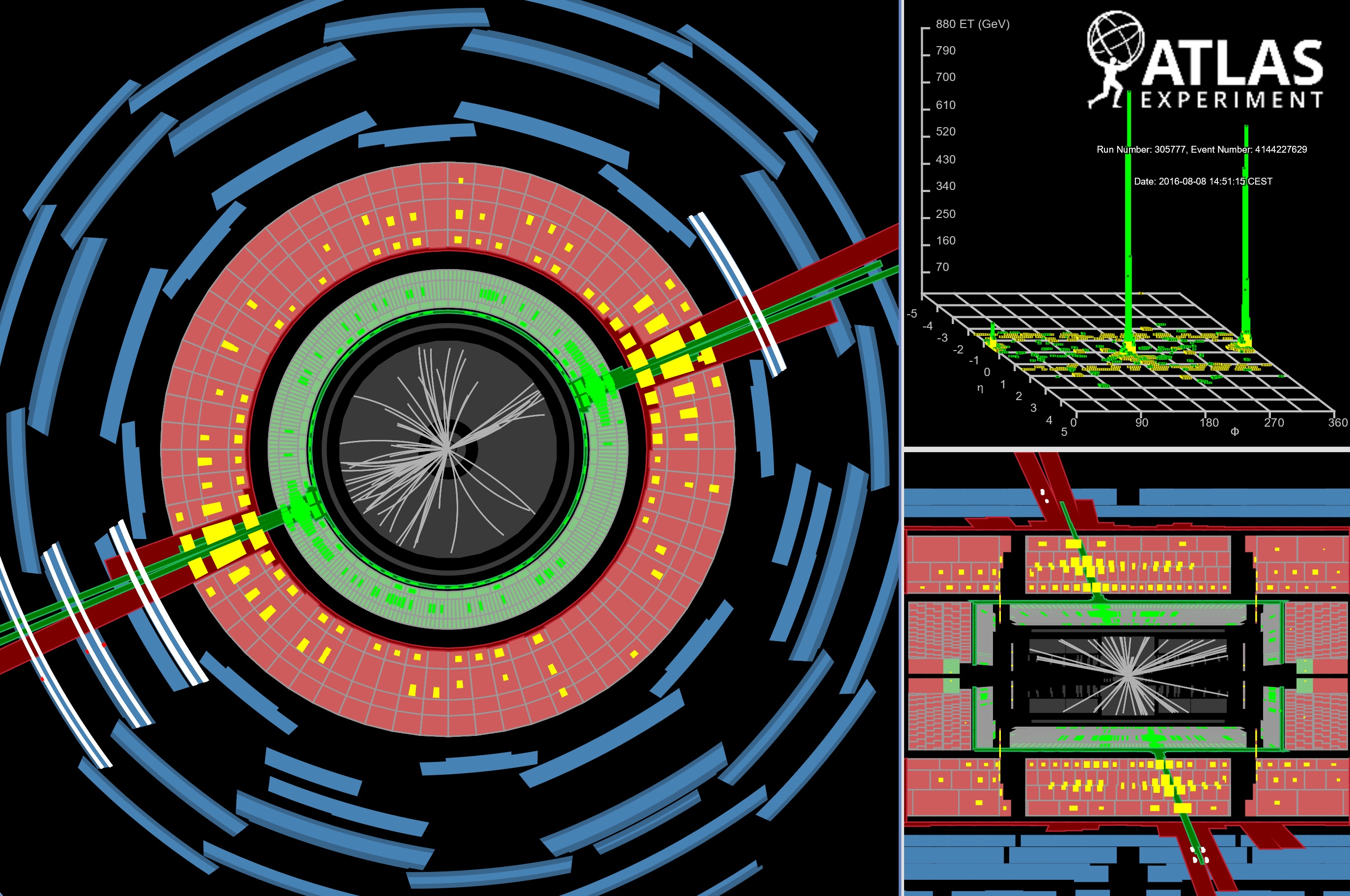News
Highlights from LHCP2018
Physicists from around the globe assembled this week at the Centre Domenico in Bologna, Italy, the site of Europe’s oldest university, to attend the sixth annual conference on Large Hadron Collider Physics (LHCP2018). The 425 participants enjoyed picturesque architecture, world-renowned cuisine, and a full menu of recent physics results from the LHC. A sample platter of a few of the tasty morsels is presented.
News |
ATLAS observes direct interaction of Higgs boson with top quark
The ATLAS Collaboration at CERN has announced the observation of Higgs bosons produced together with a top-quark pair. Observing this extremely rare process is a significant milestone for the field of High-Energy Physics. It allows physicists to test critical parameters of the Higgs mechanism in the Standard Model of particle physics.
Are you up for the TrackML challenge?
Physicists from the ATLAS, CMS and LHCb collaborations have just launched the TrackML challenge – your chance to develop new machine learning solutions for the next generation of particles detectors.
News |
ATLAS starts new year of data-taking
News |
Hands-on particles: Schools worldwide analyse ATLAS data
Every spring, hundreds of universities around the world open their doors to high-school students for a day to give them hands-on experience in particle physics. The International Masterclass programme gives students the chance to use real data collected by the ATLAS detector and other LHC experiments to test the Standard Model and search for new particles.
News |
Beyond discovery: ATLAS explores the Higgs boson
The ATLAS Collaboration at CERN has released new studies of the Higgs boson using 13 TeV data collected in 2015 and 2016. The results further corroborate the Standard Model nature of the Higgs boson, and open doors to fresh searches for new physics.
News |
ATLAS on track for 2018 data taking
It’s kick off at the Large Hadron Collider! Proton beams are circulating once again in the accelerator, marking the start of a new year of exploration for the ATLAS experiment.
News |
New winners of the ATLAS Thesis Awards
News |
First high-precision measurement of the mass of the W boson at the LHC
In a paper published today in the European Physical Journal C, the ATLAS Collaboration reports the first high-precision measurement at the Large Hadron Collider (LHC) of the mass of the W boson. This is one of two elementary particles that mediate the weak interaction – one of the forces that govern the behaviour of matter in our universe. The reported result gives a value of 80370±19 MeV for the W mass, which is consistent with the expectation from the Standard Model of Particle Physics, the theory that describes known particles and their interactions.
Explore virtual CERN with ATLAScraft
Enter the world of particle physics with the newly-launched ATLAScraft! Players can explore the CERN campus, shrink down to the size of a particle, and even conduct their own “experiments” in educational minigames.
News |
Broken symmetry: searches for supersymmetry at the LHC
A commentary by ATLAS physicists Paul de Jong and George Redlinger on the history, progress and future of the search for supersymmetry.
Feature |
Behind the scenes at ATLAS Week
A few times a year, the large LHC collaborations such as ATLAS organise an internal overview session. This photo essay will take you to the most recent of these “ATLAS Weeks” – giving you a glimpse behind the curtain, and exploring this essential part of the collaboration structure and life.
News |
Noble nuclei open new doors in ATLAS physics
Take something you think you understand, change it and see what happens. Earlier this month, the ATLAS Experiment put this basic scientific principle to the test during the first Large Hadron Collider (LHC) xenon run.
News |
ATLAS LIVE: Celebrating 25 years of discovery
To celebration of its 25th anniversary, ATLAS is hosting a series of Facebook live events today, Monday 2 October 2017. Explore key locations around CERN - including the ATLAS control room, Building 40 and the ATLAS TileCal workshop - while learning about the physics, construction and history of the ATLAS Experiment.
News |
On top of the top: ATLAS highlights from the TOP2017 workshop
The ATLAS collaboration presented exciting new results at the 10th International Workshop on Top Quark Physics (TOP2017), held in Braga (Portugal). The conference, which concluded today, brought together experimental and theoretical physicists specializing in the heaviest known elementary particle: the top quark.
News |
ATLAS sees first direct evidence of light-by-light scattering at high energy
Physicists from the ATLAS experiment at CERN have found the first direct evidence of high energy light-by-light scattering, a very rare process in which two photons – particles of light – interact and change direction. The result, published today in Nature Physics, confirms one of the oldest predictions of quantum electrodynamics (QED).
ATLAS highlights from EPS-HEP 2017
The ATLAS Collaboration has presented important new results at the European Physical Society conference on High Energy Physics (EPS-HEP) in Venice (Italy), including the latest analyses of 13 TeV Run 2 data from the Large Hadron Collider (LHC).
News |
Hunt for Dark Matter in the “Phantom of the Universe”
From the chaotic moments after the Big Bang to present day proton collisions in the ATLAS Experiment, the new planetarium show Phantom of the Universe takes viewers on the hunt for dark matter. The show has been awarded an honourable mention for outstanding and innovative production at the 11th International FullDome Festival in Germany.
News |
ATLAS kicks off a new year at 13 TeV
Geneva, 23 May 2017. A new season of record-breaking kicked off today, as the ATLAS experiment began recording first data for physics of 2017. This will be the LHC’s third year colliding beams at an energy of 13 tera electron volts (TeV), allowing the ATLAS Experiment to continue to push the limits of physics.
ATLAS highlights from LHCP 2017
The fifth annual Large Hadron Collider Physics (LHCP2017) conference was held this week at Shanghai Jiao Tong University in a leafy suburb in the former French concession in Shanghai, China. This year there were more participants than ever before: 470 people from universities across the globe. ATLAS presented an interesting set of new results exploiting the high statistics of the combined 2015 and 2016 dataset.
News |
ATLAS at the starting line
The start of the 2017 run marks the conclusion of a maintenance period known as the Extended Year-End-Technical-Stop (EYETS). This upkeep is vital for the health and well-being of the detector, ensuring that ATLAS can thrive for the months of high-intensity operation that follow.
News |
Beams return to the ATLAS Experiment
With the year’s first proton beams now circulating in the Large Hadron Collider, physicists have today recorded “beam splashes” in the ATLAS experiment
News |
Impressions from Moriond
The 52nd Rencontres de Moriond conference was held in La Thuile, Italy, from the 18 March to 1 April. The first week, which ran until 25 March, was devoted to the theme "Electroweak interactions and unified theories", while the second week was based on the theme of “QCD and high energy interaction”.
News |
ATLAS highlights from Moriond 2017
At this year’s Rencontres de Moriond, the ATLAS collaboration presented the first results examining the combined 2015/2016 LHC data at 13 TeV proton–proton collision energy. Thanks to outstanding performance of the CERN accelerator complex last year, this new dataset is almost three times larger than that available at ICHEP, the last major particle physics conference held in August 2016.
News |
ATLAS to present new results at Moriond
Every March for the past 50 years, particles physicists have been heading to the mountains. The terminus of this migration? Les Rencontres de Moriond, one of the year’s first major conference for high-energy physics.
News |

